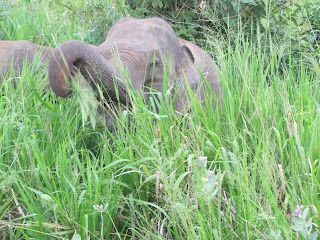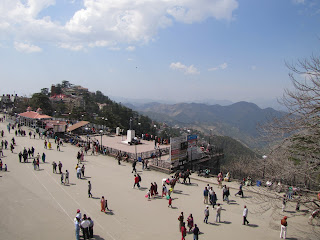We arrived at the Elephant center about a week ago now. It's a little like stepping onto the set of Jurassic Park, with random monsoonal rains, giant mosquitoes and other flying creatures and wildlife buzzing about and of course these incredible dinosaur-like elephants.
Brent and I were allocated a large male elephant named Saliya, he is about 5o years old and is extremely placid. Initially I wanted my own elephant but once I started looking after him and got involved with all the other happenings at the foundation I was more than pleased to be sharing. When we arrived at the center it was extremely disorganised due to it being Shri Lankan new year and due to the English coordinator having left. There were already some other volunteers here but it didn't take long before Brent and I got cracking on things and with the help of the owner/vice president of the foundation brought a bit of order and organisation back to the place.
Our day goes a little like this: At around 730am we meet our Mahout and go and collect our elephant from his sleeping area. While Brent assists the mahout I get the lovely job of removing between 40-100 dung balls (with my hands!) which has to be counted, observed and recorded for medical reasons. After this we take our elephant down to the river to bath and scrub him with coconut. This is pretty strenuous work and leaves your hands blistered and arms aching. We then head off for a quick breakfast before returning to our elephant to check his feet and feed him his vitamins. From about 10am onwards Brent and I have been working in the eco-garden. This was in pretty bad shape upon our arrival and has required us to remove the entire garden, bring in new soil (which of course we had to dig up) and plant new seedlings. We have also managed to transfer all the elephant records to electronic version, create a teaching resources 'corner', shift an entire veterinary room, update files, sponsorship packs, newsletters and more. Three afternoons a week we head into town to teach English to the local kids and today I will finally get this privilege as it has been school holidays.
Usually in the late afternoon just as the monsoonal rains begin our mahout decides to put our elephant to bed. Of late this has required us to drag 30-60 giant coconut leaves to our elephant as well as tend to some of his cuts and wounds, usually while a huge electrical storm crackles and thunders overhead.
Exhausted, saturated, covered in leeches, mosquito bites, rashes from the wild grass, cuts and bruises we drag ourselves to bed rather early but having felt pleased at accomplishing something worthwhile each day. We are looking forward to what the next week or so brings.
 |
| Me and our Mahout 'VJ' scrubbing Saliya |
 |
| Brent cleaning Saliya's feet |
 |
| Me with one of the house dogs 'Collin' |
 |
| Brent feeding Saliya his vitamins |










































